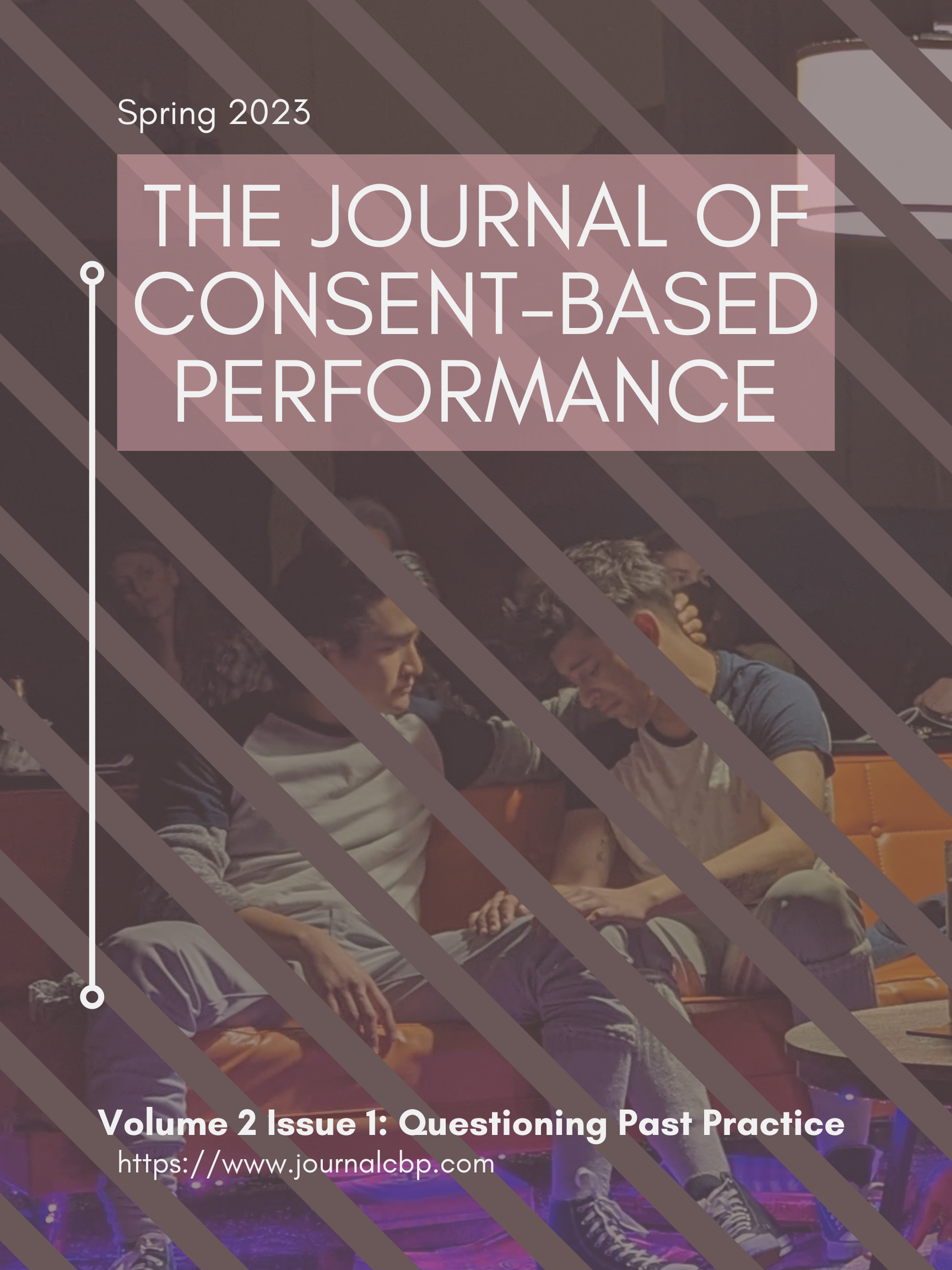
-
Front Matter
Cover
CFP
Demystifying the Moment: Choreographer’s Notes on Cover Art
authored by Greg Geffrard
Featured scene from The Wizards by Ricardo Gamboa, produced (2022) at APO Cultural Center in Chicago. Choreography by Greg Geffrard and Sheryl WilliamsQuestioning Past Practice: Editor’s Notes
Table of Contents
-
Focus on Impact, Not Intention: Moving from 'Safe' Spaces to Spaces of Acceptable Risk
Laura Rikard and Amanda Rose Villarreal analyze the concept of ‘safe’ or ‘brave’ spaces, tracing the origin of these terms through queer anti-oppressive practice to sloganizing within higher education settings. Analyzing safety as an aspiration rather than an active pedagogical approach, the authors offer actionable tools for creating spaces of acceptable risk, instead.
-
New Repetitions Questions and Suggestions for a More Trauma-Informed Production Process
Karie Miller, Kelsey Miller, and Elizabeth Wellman accept the premise that it is difficult to enact change, which requires unlearning beliefs and practices embedded in the performing arts. In this article, the authors offer practical questions, reflections, suggestions, and resources targeted to each phase of a production to support artists in unlearning and in activating change.
Read this Note From the Field by Miller, Miller, and Wellman
-
Promoting Psychophysiological Play Applying Principles of Polyvagal Theory in the Rehearsal Room
Independent researcher Sheridan Schreyer analyzes the request for actors to "play" with the material they are given. Schreyer summarizes Dr. Stephen W. Porges's Polyvagal Theory, highlighting ways in which Porges’s research can inform artists in creating artistically fulfilling and consensual rehearsal processes
-
Do we Get More Points if we Take Bigger Risks? Modeling Boundary-Setting in the Undergraduate Acting Classroom
Building from the ideas and practices of Theatrical Intimacy Education which provide guidance on how to set and communicate boundaries, Nicolas Shannon Savard outlines tools for educators and directors seeking to facilitate frank and open conversations about the decision-making processes that go into boundary-setting and giving informed consent. Utilizing practice-based research methodology, Savard reflects upon and proposes a practical framework for theatre educators and directors to use in facilitating conversations about risk, boundaries, and consent in their own classrooms.
-
Curatorial Directing and Actor Agency: Consent-Based Practices for Digital Performance
Recognizing that digital performance will survive and evolve far beyond the pandemic, and in response to Rikard and Pace’s call for theatre educators to reconsider what consent looks like in on-camera classrooms, this article engages with the genre of digital performance that W.B. Worthen’s analysis of performances created during the pandemic names as “Zoom Theatre” (2021). This article focuses on the ways in which the framing of Zoom Theatre can complicate Laura Mulvey’s concept of the Male Gaze (1975), introducing the concepts of agentic framing and curatorial directing as tools for creating consent-based performance within the unique contexts of Zoom Theatre.